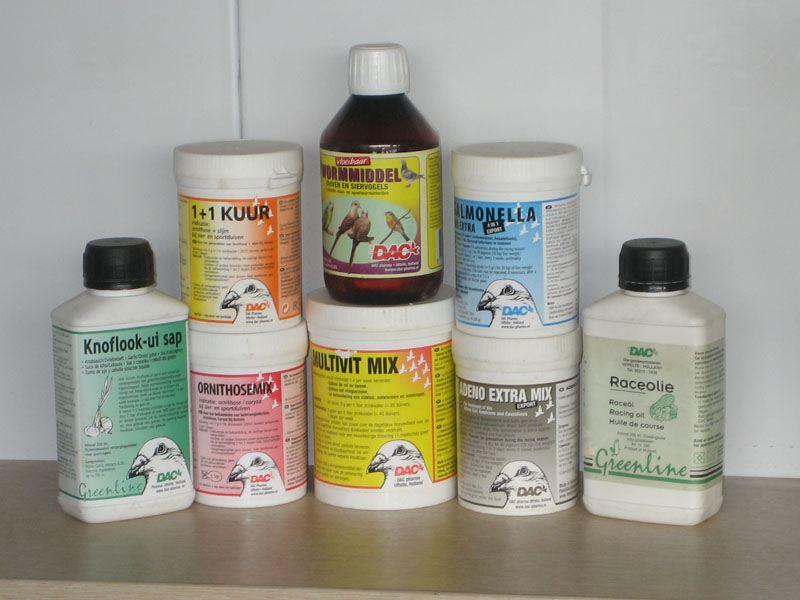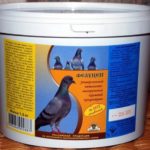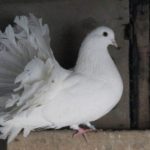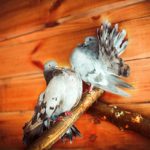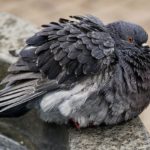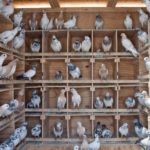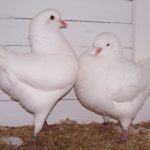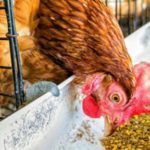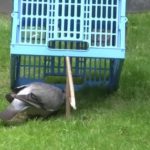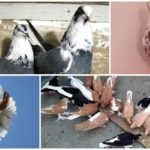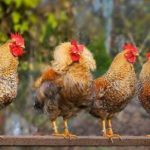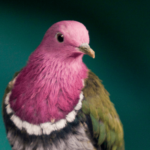Pigeons are bred so that there is someone to take care of in their free time and to admire the bird's flight. After all, fed birds always return home. Pigeon is a delicious dietary meat. Whatever the purpose of breeding these birds, they must be healthy. Vitamins are necessary for pigeons in the same way as for people, but their relative and quantitative content is different.
What vitamins do pigeons need?
Vitamins, due to their importance for life, should be in the attention of the poultry farmer. The need for them in the body of pigeons is influenced by:
- age;
- physical activity;
- laying eggs;
- painful conditions;
- molting;
- weight;
- ambient temperature.
| Name of vitamin | Supported vital functions and participation in organ formation | Which products contain the most |
| A | Visual acuity, plumage, bones, growth rates, high egg production, protective properties of mucous membranes in contact with the external environment. | Milk, fish oil, carrots, parsley, dandelion. |
| E (tocopherol) | Reproductive organs, immunity, fat metabolism. | Sprouted grains and legumes, dairy products, eggs, vegetable oils. |
| D | Calcium-phosphorus metabolism, bones, egg shells. | Yeast, fish oil, sunflower oil, legumes and green parts of peas, soybeans, beans. |
| TO | Increases blood clotting, participates in metabolism in connective tissues, and the formation of eggs. | Nettle, alfalfa, clover, green peas, tomatoes, carrots, spinach. |
| B1 (thiamine) | Immunity, nervous system, carbon metabolism. | Cake, greens, yeast, bran, soy, whey. |
| B2 (riboflavin) | Growth processes. | Brewer's yeast, sprouted grains, whey. |
| B3 (nicotinic acid) | Protein and fat metabolism, enzymes, nervous system, antitoxin. | Yeast, cake, animal fats and proteins. |
| B4 (choline chloride) | Joints. | Grain, beets, yeast, legumes. |
| B5 (pantothenic acid) | Nervous, cardiovascular, digestive systems, metabolism. | Potatoes, yeast, carrots, bran, greens, cabbage. |
| B6 (pyridoxine hydrochloride) | Skin, hematopoiesis, protein metabolism. | Yeast, grass, animal feed. |
| B12 (cyanocobalamin) | Protein synthesis, heredity, egg production, hematopoiesis, immunity. | Fish and animal feed. |
| B9 (folic acid) | Cellular metabolism. | Vegetables, soy, grass. |
| N (biotin) | Skin, liver fat metabolism. | Legumes. |
| C (ascorbic acid) | Accelerates the healing and shedding processes. | Carrots, greens. |
How to give correctly
At the end of winter, vitamin supplements become important even for free-range birds. The nutrition of aviary pigeons is completely calculated by their owner and must be balanced all year round. Vitamins are added to food or water.
The most accurate dosage calculation is obtained in relation to body weight (milligrams per kilogram of live weight or micrograms per kilogram). The advantage of adding vitamins to the food rather than to the water is the fact that the water quickly becomes contaminated and it is better to change it before it is all drunk.
Pigeons have a more intense metabolism, so for them the dosage is reduced to within half the norm up to 1 year inclusive. Dry concentrated vitamins (including group B) are recommended to be given when strong signs of their deficiency are detected. In case of slight growth retardations or other mild symptoms, increase the percentage of eggshells, sprouted grains, grass and feather meal, and grated carrots in the feed.
Sick birds refuse to eat and drink. All components necessary for recovery are injected by force; a syringe is used for liquids.
Possible mistakes
An overdose of vitamins has a detrimental effect on liver function. Other organs also suffer. Pharmaceutical drugs should be administered gradually, stopping increasing the dose as soon as an improvement in the pigeons’ condition becomes noticeable.The food may be balanced, but the birds show signs of vitamin deficiency. This happens with diseases of the digestive tract.
| Type of hypovitaminosis | Therapeutic dose per day for 1 pigeon | Symptoms |
| A, D, E | 1-2 drops of fish oil for 10 days (A, D).
During the laying period - 40-150 mcg of concentrated powder of the preparation E. |
Weakness, inflammation of the eyes, dull feathers. |
| B3, B6, B9, B12 | 0.5 g of yeast, 30 mcg, 10 mcg, 30 mcg respectively. | Anemia, neck paralysis, limb weakness, growth retardation, thin plumage. |
| AT 5 | 50-70 mg (dosage is given per 1 kg of feed). | Trembling limbs, crusts in the corners of the eyes and mouth, enlarged joints on the legs, liquid droppings, poor plumage. |
| AT 2 | 3-5 mg for 15 days. | Growth retardation, corneal hemorrhage, poor feathering, crooked fingers. |
| C | 5-10 mg. | Anemia, decreased immunity. |

